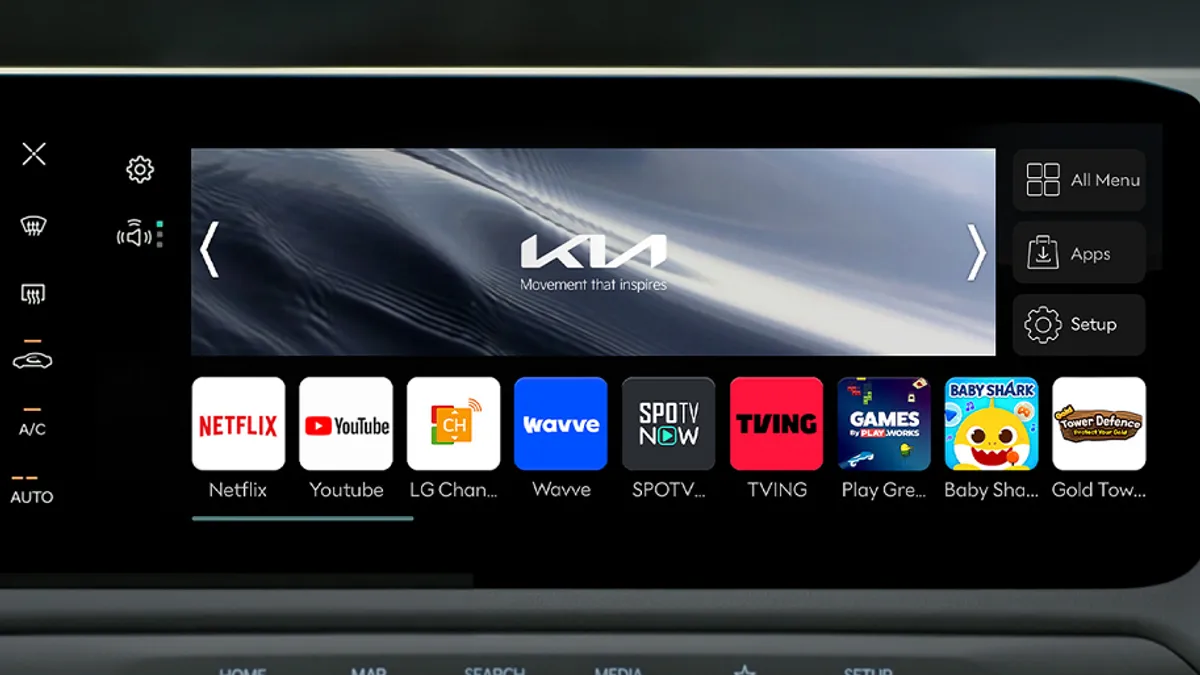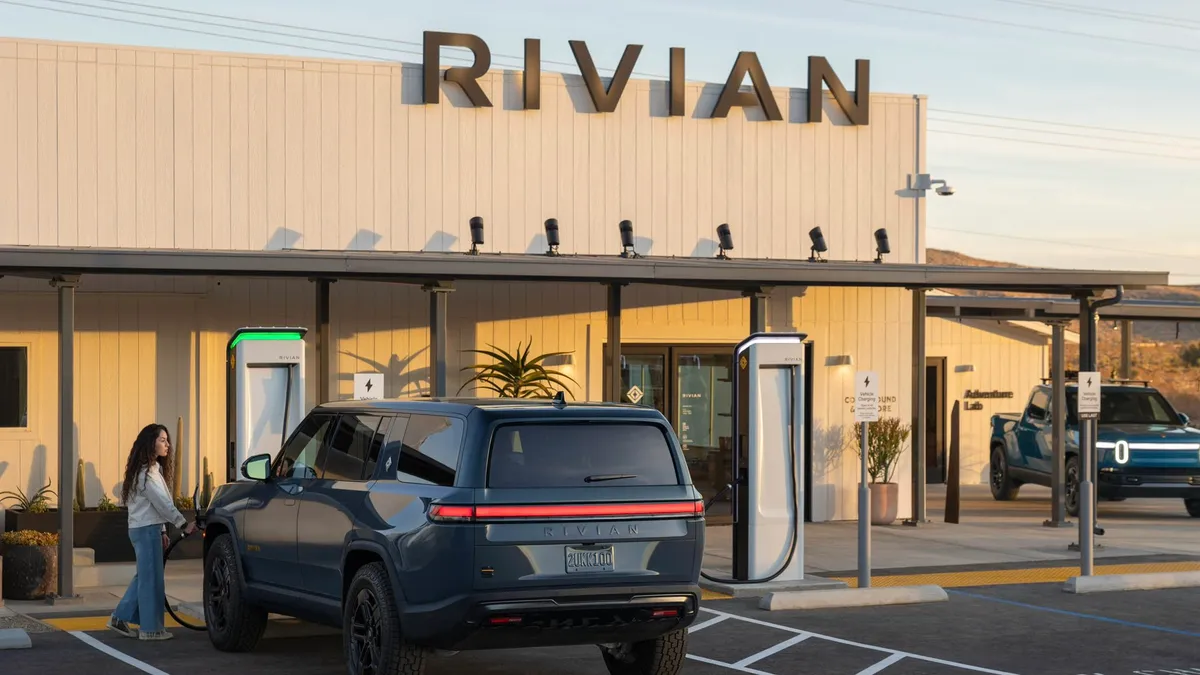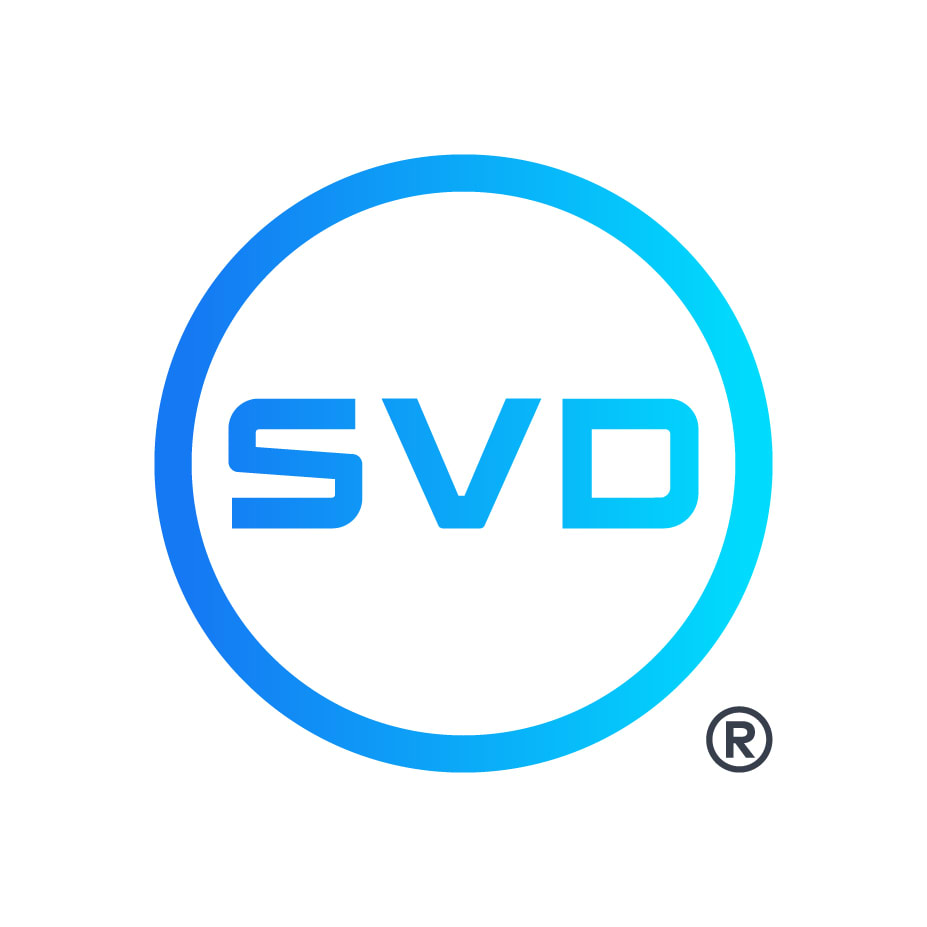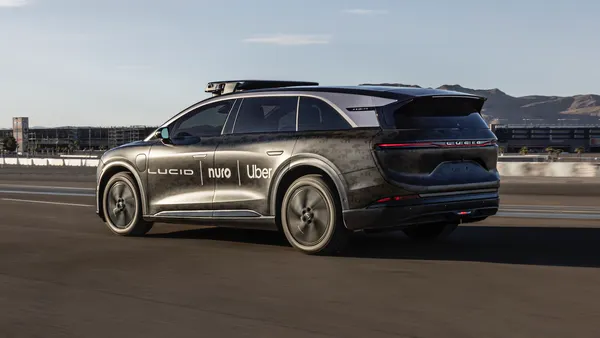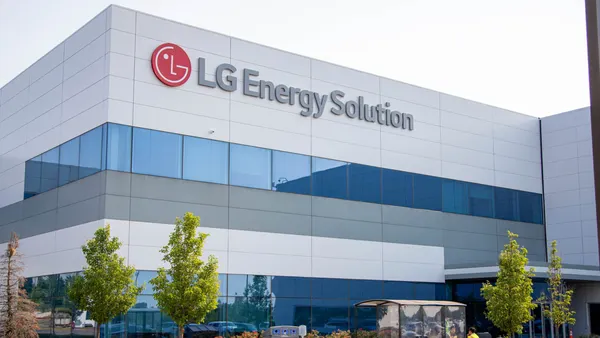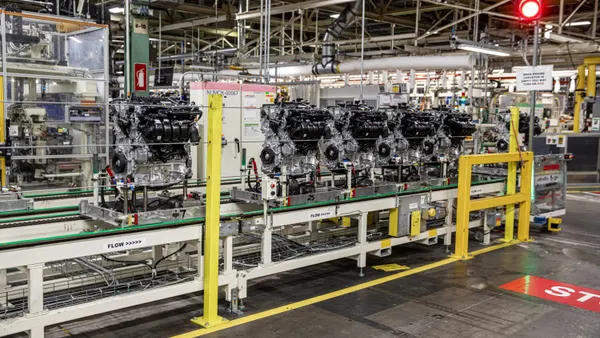Dive Brief:
- LG Electronics announced a new suite of software products dubbed “LG AlphaWare” that can help automakers create immersive in-vehicle experiences for software-defined vehicles, the company announced in a press release.
- The features of LG AlphaWare were presented at the AutoTech: Detroit conference on June 6 and includes five core solutions, PlayWare, MetaWare, VisionWare, BaseWare and OpsWare.
- AlphaWare is designed to serve as a development platform to help automakers and suppliers overcome the technical challenges of adding advanced software and connectivity features to vehicles.
Dive Insight:
Modern vehicles are becoming more like computers on wheels with sophisticated software powering vehicle systems such as infotainment and safety. But according to a January report from AlixPartners, just 1 in 4 automakers and Tier 1 automotive suppliers are fully prepared for the era of software-defined vehicles. In addition, over half of Tier 1 suppliers plan to collaborate with tech companies to boost their software-defined vehicle capabilities.
Each of the five core components of LG’s AlphaWare are designed to work together to help developers and OEMs add specific features and functions to a vehicle. It also brings some of LG’s entertainment technology to the auto industry for the first time.
“LG AlphaWare will play a central role in enabling SDVs to become ‘living spaces on wheels’ through its ability to facilitate user-experiences similar to those offered by LG’s consumer electronics for the home,” said Valentin Janiaut, LG Vehicle Component Solutions Company software lead, during a presentation at AutoTech: Detroit.
PlayWare serves as an entertainment software platform for delivering high-definition content and enhanced audio to vehicles. The software leverages LG’s existing partnerships with major streaming platforms, including sports and news content. PlayWare also supports the streaming of movies and other entertainment in 4K resolution. It includes AI-powered audio technology, adapted from LG’s consumer TVs, that adds more immersive spatial audio to vehicles.
LG’s MetaWare platform builds upon PlayWare. The software can be used to create augmented- and mixed-reality technologies for vehicle displays. MetaWare can also generate realistic 3D environments from a 2D map, which offers drivers a more immersive navigation experience.
BaseWare serves as the hardware foundation of the vehicle. It includes a collection of software modules to enhance an OEM’s existing vehicle operating system, but also allows developers to create custom software.
BaseWare also supports real-time cloud-based management. It includes what LG refers to as a “Mixed Critical Orchestrator,” which supports the management of services both on-device and in the cloud, while adhering to rigorous vehicle security requirements.
LG’s OpsWare platform serves as a central operations hub to support collaboration among developers. It allows global teams to collaborate throughout the entire software development process, from initial design to its deployment in a vehicle.
In addition, OpsWare prioritizes cybersecurity management, providing customers with support for long-term maintenance needs. It includes “Cybersecurity-as-a-Service” that provides OEM’s with continuous monitoring of vehicle software against security threats.
The VisionWare software platform serves as the foundation for an AI-powered advanced driver assistance system. It includes an occupant monitoring system that can analyze driver and passenger behavior, such as detecting seat belt usage, hand gestures, behavior patterns and the presence of children. It can also help prevent driver distractions.
“With our AlphaWare, we will deliver a safer and more enjoyable vehicle experience in the SDV era,” said Eun Seok-hyun, president of LG Vehicle Component Solutions, in the press release. “SDVs represent a shift not only in technology but in the entire ecosystem of vehicle manufacturing, usage and ownership.”
LG Electronics aims to become a major automotive electrical component supplier and is targeting sales of $15.7 billion by 2030, the company announced last year. It’s focused on areas such as autonomous driving, electric vehicles, software, digital content and EV charging.



